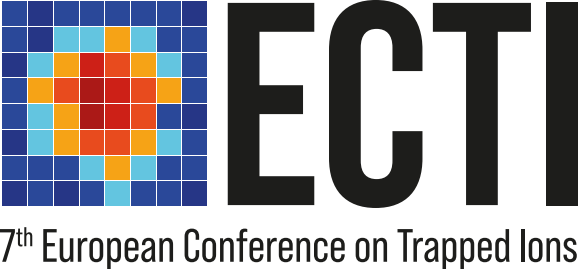Speaker
Description
Ion traps are a promising candidate for a scalable quantum computer [1]. A major challenge is the integration of qubit control into the device.
With the microwave near-field approach [2], qubit control realized by microwave conductors that are integrated into the ion trap naturally scale with the trap itself.
However, the microwave signal generation currently takes place outside of the vacuum chamber in which the ion trap is located.
The QuMIC project researches and develops novel highly integrated BiCMOS chips at high frequencies and their hybrid integration with quantum electronics like ion traps.
This approach enables the scalability of a quantum computer to a large number of qubits and a drastic reduction in the number of required high-frequency lines, which also benefits the cooling capabilities of the cryostat used to cool down the ion trap to around 4 K.
We describe the setup of a cryogenic ion trap apparatus for rapid testing of traps, such as the ion traps with integrated microwave sources developed for QuMIC.
We discuss the operating principle of the microwave generator and the planned impedance matching network.
Finally, we will report on the current status of the project.
[1] Chiaverini et al., Quantum Inf Comput 5, 419-439 (2005)
[2] Ospelkaus et al., Phys. Rev. Lett. 101, 090502 (2008)

